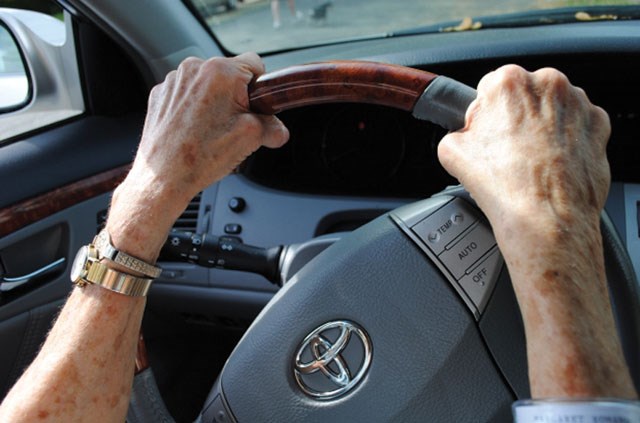She drove all the way from Richmond to Kamloops, sparking a major police and public search in the process.
The 89-year-old woman, who suffered from only mild dementia and was known to drive long distances without asking for help, eventually turned up safe and sound.
However, the News looked into how many drivers with dementia are on the road in B.C. and no authority was able to come up with a figure.
Neither ICBC nor the provincial government’s RoadSafetyBC or the Alzheimer Society of B.C. was able to provide any details.
And when you learn that 60 per cent of dementia sufferers in B.C. are living “normal” lives in the community and many of them are able to get behind the wheel of a car, safety flags are inevitably raised.
Just how many are among the 5,400 plus drivers re-examined for medical reasons by ICBC — at the behest of RoadSafetyBC — in the last 10 years is also unknown.
What is known is that most, if not all, of the responsibility for making sure dementia sufferers are fit to be on the road lies with the people around them, whether that be family members, friends or their own doctor — who are asked to notify RoadSafetyBC if they feel the person in question is a risk.
And knowing what that denial of independence can do to a loved one makes filing that report all the tougher for anyone living close to someone with dementia.
“It is difficult to provide precise numbers of people with dementia in the province who drive,” said Barbara Lindsay, advocacy and education director at the Alzheimer Society of B.C.
“However, everyone with a diagnosis of dementia must stop driving at one point during their journey with the disease.”
That decision, however, is not always taken voluntarily — for obvious reasons. In such circumstances, relatives or friends are advised by the society to look out for problematic driving patterns, traffic tickets (for going too slowly, too quickly, improper turns, failing to stop), crashes, fender benders or near-misses, as well as instances where the driver has been lost.
When seniors hit 80, they have to take a medical exam every two years. But before that milestone, and in between each 80 and over medical exam, it’s still incumbent on relatives and friends to monitor dementia sufferers’ driving abilities.
If they want to report the driver to RoadSafetyBC, they can’t withhold their name and they must detail the reasons why the driver isn’t fit to be on the road.
Doctors are bound by professional ethics, and in some provinces by law, to report medical conditions that could impair a person’s ability to drive. They may also be held liable if a person in their care is involved in an auto accident and they have not reported the person’s driving problems to provincial licensing authorities.
“Once all the information is received, a RoadSafetyBC driver medical fitness adjudicator will review all the medical information, the results of any additional assessments, together with the client’s driving history, and make a licensing decision,” according to RoadSafetyBC’s website.
“As long as drivers are considered fit to drive and they do not possess any conditions or restrictions that would limit their ability to drive safely, they remain licensed.”
Alzheimer Society of B.C.’s Lindsay recognizes the significance of losing the ability to drive.
“After the shock of receiving the diagnosis, there are a number of milestones along the journey that are extremely difficult,” said Lindsay.
“Ceasing driving is one of the most challenging for the person and the family, as it affects a person’s independence and mobility.
“We encourage decision-making (of the relative or friend) to include the individual with dementia in a respectful and dignified way.
“Since driving cessation has such a large impact on a person’s every day, we encourage brainstorming alternative transportation options so the person living with dementia can still continue in participating and being active in their community.”
Nationwide guidelines and tools are currently being created by researchers to help family doctors assess their older patients’ fitness to drive, including their cognitive abilities.
A recent Queen’s University study predicts Ontario drivers with dementia will more than double to 100,000 in 2028.
But family doctors often don’t have the training to make that assessment, and many are reluctant to take away their patients’ independence along with their licence.
That’s where the Canadian Driving Research Initiative for Vehicular Safety in the Elderly (CanDRIVE) comes in. The program’s nearly 100 researchers recruited 1,000 drivers aged 70 and older to take part in a Canada-wide study of the factors affecting their safety on the road. Volunteers have agreed to have a transmitter in their cars to record events such as sudden stops and accidents.
The five-year research initiative, now in its third year, is also examining the effectiveness of road tests for seniors, automobile design and what makes seniors decide to stop driving.
The Alzheimer Society of B.C. provides support, education and information – including resources on driving – for people with dementia as well as for caregivers.
Visit www.alzheimerbc.org for more information.”



